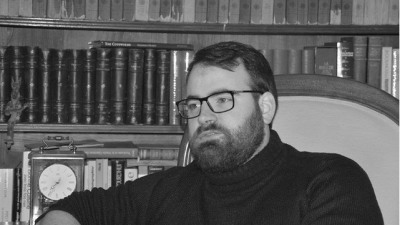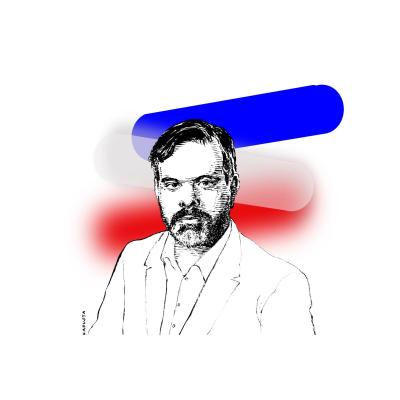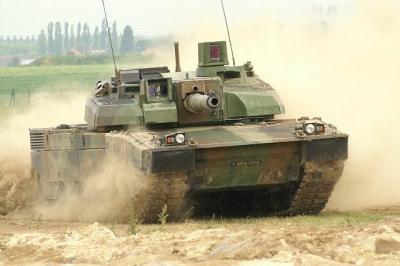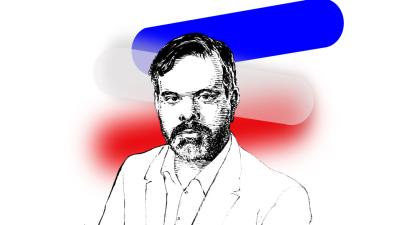Philippe Fabry: On the need for a Franco-Polish alliance as a counterweight to German and Russian hegemony
Interview with Philippe Fabry, French historian, geopolitologist and essayist, author of: "Rome, from liberalism to socialism" and "Atlas of future wars".
Patrick Edery: In an article published in France, you have recently spoken of the interest in the Franco-Polish alliance, referring to General de Gaulle. Can you explain to us what you mean by the Franco-Polish alliance and how it is essential for the balance in Europe?
Philippe Fabry: In short, the Franco-Polish alliance is an axis of cooperation that should be strengthened in the coming years in response to the geopolitical threats facing Europe. The idea behind this would be to create a counterweight to the German-Russian alliance, which is a real threat to the stability and security of the continent. As I have said, the only way to improve relations within the European Union in the months and years to come is to rebalance France's relations in the direction of its permanent geostrategy, i.e. the Franco-Polish alliance. This is the only way to build the necessary counterweight between Russia and Germany to avoid the hegemonic excesses of both - even if the modalities of German hegemony are obviously more polished than those of Russian imperialism.
Why do you think that the German-Russian alliance is a threat to Europe?
I would go back to the words of General de Gaulle, which were simple and must obviously be perceived, with all the necessary hindsight, in the current situation: Russia and Germany are natural allies, since together they can dominate Central Europe, which neither could do without the other. The German-Russian alliance is a threat to Europe because it creates a dangerous geopolitical imbalance. This reality has led to the marginalisation of Western Europe, especially France, which suffered disastrous consequences of the German-Russian entente in the past. Poland, which has no natural frontiers, was also a victim of this alliance in the past. Today, Russia is back on the Polish border, after the invasion of Ukraine and the creeping annexation of Belarus. This directly threatens the security of Poland and its neighbours.
In your opinion, why is it important for France to strengthen its alliance with Poland?
France needs to strengthen its alliance with Poland for several reasons. First of all, it would create a counterweight to the German-Russian alliance, which threatens the security and stability of Europe. Secondly, it would restore the geopolitical balance in Europe by creating a balance of power between the different states. Finally, it would allow France to regain its place in the European geopolitical game and to free itself from the fascination with German strategic choices.
How to improve Poland's image in France and strengthen the Franco-Polish alliance?
First of all, France must update its image of Poland and consider it as a credible and important ally for the stability of Europe. It is essential to recognise Poland's spectacular recovery from communism and its future prospects for power in Europe. Second, France must work with Poland to strengthen their cooperation in many areas, including security and defence, energy, economy and culture. This can be done by strengthening the ties between the two countries through diplomatic, economic and cultural exchange, creating strategic partnerships and alliances, and encouraging mutual investments. France must also show solidarity with Poland in its defence of that country’s geopolitical interests and in its fight against external threats.
It is not often mentioned in France, but Poland has tried several times to strengthen its alliance with France. However, from François Hollande to Emmanuel Macron, such attempts were rejected with little consideration by Paris – both for ideological reasons and out of fear of offending Germany,. Now that Warsaw has become Washington's privileged ally on the continent, isn't it too late for Paris?
I don't think so. For me, it is not simply a question of a "place to take": the Franco-Polish relationship has such a long and rich history that it goes beyond classic state-to-state relations. Of course, the friction of recent years, which was avoidable, has undoubtedly generated weariness on the Polish side, but nothing that seems impossible to erase quickly with a little good will. Especially since the third actor, the United States, does not seem to have any interest in coldness of the French-Polish relations on the one hand, while on the other hand France has not committed any actions contrary to American views since the beginning of the crisis in Ukraine and Germany has been the focus of criticisms for the lack of readiness to help Ukraine. The rebalancing of the European Union's internal relations can perfectly well be accompanied by re-evaluation of American European policy, which would be less centred on Germany and would rely more on Poland and France.
In your opinion, is Poland a key player in Central Europe?
Absolutely. Today Poland is France's leading economic partner in Central Europe and the third most populous country in the region, following Russia and Ukraine. It has posted average economic growth of 4% per year since the early 2000s. In addition, Poland is modernising its military by acquiring 1,000 tanks, 672 K9 howitzers, 48 FA-50 fighter aircraft and 288 K239 multiple rocket launchers from South Korean and US manufacturers. The country is also investing massively in its infrastructure, notably with the Centralny Port Komunikacyjny project, which aims to create one of the largest airports in Central Europe. That project will strengthen North-South exchanges in Europe, as well mobility in the Central Europe of which Warsaw wishes to become the heart.
Does Poland have a long-term strategic vision for Central Europe?
Poland is integrating its economic development into a genuine long-term strategic vision, which echoes the old dream of the Miedzymorze Federation. It encompasses a geographical community of the Baltic-Slavic area from the Baltic States up to Crimea and Croatia, which is already embodied in the Three Seas Initiative. Such structuring role of Poland demonstrates that Eastern Europe is not destined to remain a cluster of small states serving as Germany's backyard or Russia's whipping boy, but is on an upward trajectory, supported by the United States. This wedge between Germany and Russia represents an interest that converges with the French national aspirations, but also and above all with the balance of power within the European Union itself. It is a condition for the existence of the democracy of nations that Europe intends to be. In short, Poland is a key player in Central Europe to be watched closely.
Read also
France: towards chaos?
All the polls and commentators had predicted that Marine Le Pen's National Rally would win the European elections in France with more than 31% of the vote, more than twice the score of President Macron's party, which came second with 14%.












Comments (0)